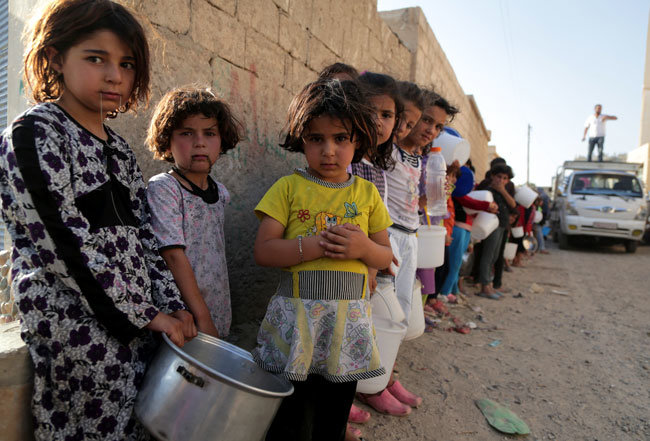Hunger and conflicts walk hand in hand

This week, FAO is convening, in Rome, the Regional Conference for the Near East and North Africa, a forum where 30 countries from Mauritania to Iran, and from Turkey to Somalia, meet every two years to review the achievements, challenges and priorities in food security and sustainable agriculture development.
These are turbulent times for the region, where conflicts and protracted crises have almost become endemic and are inflicting immense suffering on the populations of the region.
Despite the progress made by individual countries in reaching the Millennium Development Goals, the number of undernourished has doubled between 1990 and 2015, and the prevalence of undernourishment has increased by 30%.
In fact, conflicts and hunger are strongly connected.
Evidence shows that countries with the highest levels of food insecurity are also those most affected by conflicts. And violence and hunger are often locked in vicious cycles in which one feeds on the other.
In Syria alone, 6.5 million people have been internally displaced, while more than 4.8 million have fled to the neighbouring countries as refugees, with increasing numbers fleeing to Europe. Half of the population that has remained in the country is in need of food assistance.
The damage to the capital stock in Syria has been estimated at 70 billion dollars. The effect of the conflict has been devastating as the country has lost half of its livestock and the agriculture production now barely reaches 40% of its pre-crisis level.
The Syrian crisis is also creating huge costs for its neighbouring countries. For Lebanon alone, this has reached 1.5% of its GDP per year, due to loss in trade and the adverse effects on tourism and infrastructure. Jordan is generously sharing its natural resources with about one million Syrian refugees, in addition to those who fled from Iraq and Gaza in earlier times.
This is all happening in a region that is considered the most arid in the world, which is facing an unprecedented escalation in water scarcity. The average availability of fresh water per capita stands at just 10% of the world average and is set to decline further as a result of increasing needs as well as the impacts of climate change.
Food insecurity, natural resources scarcity, unemployment and migration, as well as the impoverishment of rural areas, will continue to destabilize peace and stability if sustainable solutions are not implemented urgently.
This defines FAO’s engagement with its Member Countries in the region.
Together, we have launched regional initiatives to address water scarcity and food security challenges, to build resilience in crisis contexts, and to tackle the root causes of rural poverty and unemployment among women and youth.
It is high time give priority to investing in the resilience of farmers and rural communities.
We need to invest massively in infrastructure, human capital and social protection in rural areas, create the conditions to diversify the source of economic growth, bridge the spatial inequality gap and stop the migration dynamics.
We need to put in place comprehensive rural poverty alleviation strategies to support family farmers, enhance their productivity of small holders and link them to markets, and improve the professionalization of producer organisations.
We need to reverse the escalation of water scarcity by enhancing governance of the water sector, strengthening the role of farmers and communities in water management, and scaling up technologies and best agriculture practices that improve agriculture water productivity and conserve the quality of water.
The Near East and North Africa Region has the capacity to emerge stronger from the current series of conflicts and crises. Other countries and regions have succeeded in the past, sometimes against the odds. This requires decisive collective action to restore confidence and build a shared vision among the region’s member countries. It will also need the support of all its partners and friends, and FAO is committed to do its part in this endeavour.
Leave a Comment